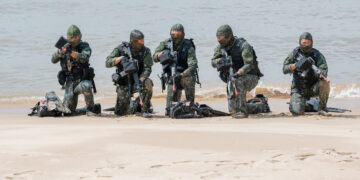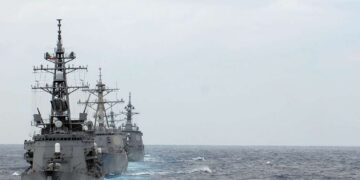July 30, 2018
U.S. Competition with China is primarily economic, not military
FOR IMMEDIATE RELEASE:
July 30, 2018
Contact: press@defensepriorities.org
WASHINGTON, DC—In response to U.S. Secretary of State Mike Pompeo’s Indo-Pacific policy address today at the U.S. Chamber of Commerce’s Indo-Pacific Business Forum, Defense Priorities senior fellow Benjamin H. Friedman issued the following statement:
“Secretary Pompeo’s remarks today are a welcome respite from the misguided approach U.S. leaders often take in discussing the region, which is to treat it as an arena for military competition against China with trade as an afterthought.
“The Secretary rightly focused on how U.S. investment can open business opportunities and enhance prosperity on both sides of the Pacific. That is worth emphasizing at time when North Korea’s missiles and China’s ambitions dominate most discussions of U.S. policy in Asia. Even China’s growth, for all the concern it generates, is more an opportunity for the United States to profit than a threat. We can get far greater return on our investment in Asia if we can heighten trade with China and lessen the cost of our military posture there, by shifting some the cost of our alliances from U.S. taxpayers and service-members to our rich allies.
“Pompeo’s emphasis on promoting a ‘free and open’ Indo-Pacific is also useful. Hopefully, that language indicates a shift for the administration away from counterproductive trade policies and toward free-market economic engagement and exchange. That’s the best way to enhance America’s security and prosperity, as well as promote our shared values in the region.”
More on China

Featuring Lyle Goldstein
February 22, 2026

Featuring Lyle Goldstein
February 22, 2026







